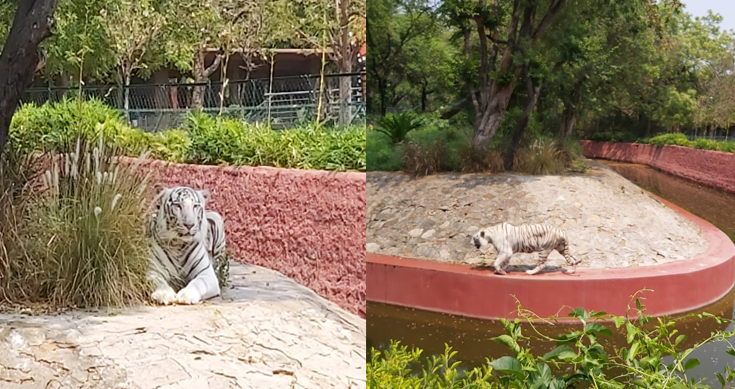Hyderabad: With a tiger at a New York Zoo testing positive for Covid-19, the Nehru Zoological Park (NZP), one of the largest zoos in the country, here on Monday, sounded an alert.
The animal keepers and veterinary staff have been alerted to monitor animals, particularly tiger and primates, for symptoms of cold, nasal discharge or any symptoms of flu.
NZP curator N. Kshitija said the precautionary measures were being taken as per the instructions of the Principal Chief Conservator of Forests and the Central Zoo Authority (CZA).
NZP officials said they were taking all steps for the safety of animals and to prevent the man-to-animal transmission of COVID-19. As part of precautionary measures, thermal scanning of about 150 zoo employees, engaged in taking care of animals, was being dome.
“All the zoo staff has been informed about the COVID-19 safety protocol,” said the NZP curator. “In view of the COVID-19 threat, we have been taking several preventive prophylactic measures since the first week of March. The entire zoo has been sanitized four times,” she said.
The Zoo, shut since March 22, is using the services of animal keepers, gardeners, security and workshop staff to feed animals, clean their enclosures, maintain hygiene and sanitation, keep an eye on the health of animals and for emergency maintenance services.
Employees have been provided a pair of reusable masks and asked to wear a mask while on duty. Every employee is being given a sanitizer and a soap every week.
The Zoo is being sanitized by spraying antiviral solution (Viracid-10gm in one litre). They are spreading bleaching and lime in the zoo, including wet moats. Spraying of sodium hypochlorite was taken up in the zoo, including along boundary walls.
All the night houses are being cleaned with vitriol.
Set up in 1963, the NZP attracts 27-30 lakh visitors a year. It houses over 155 species and 1,550 specimens in spacious enclosures.


